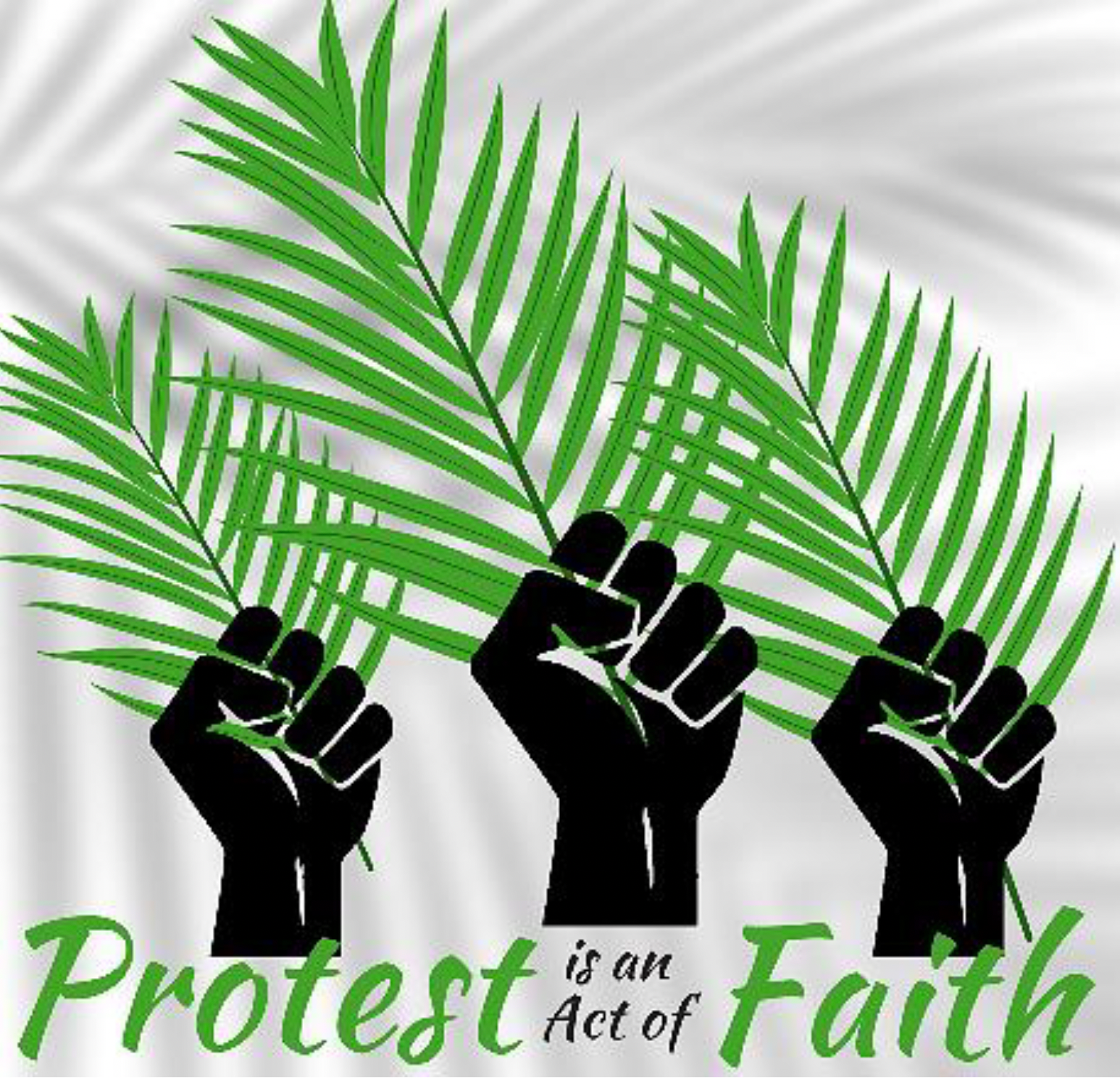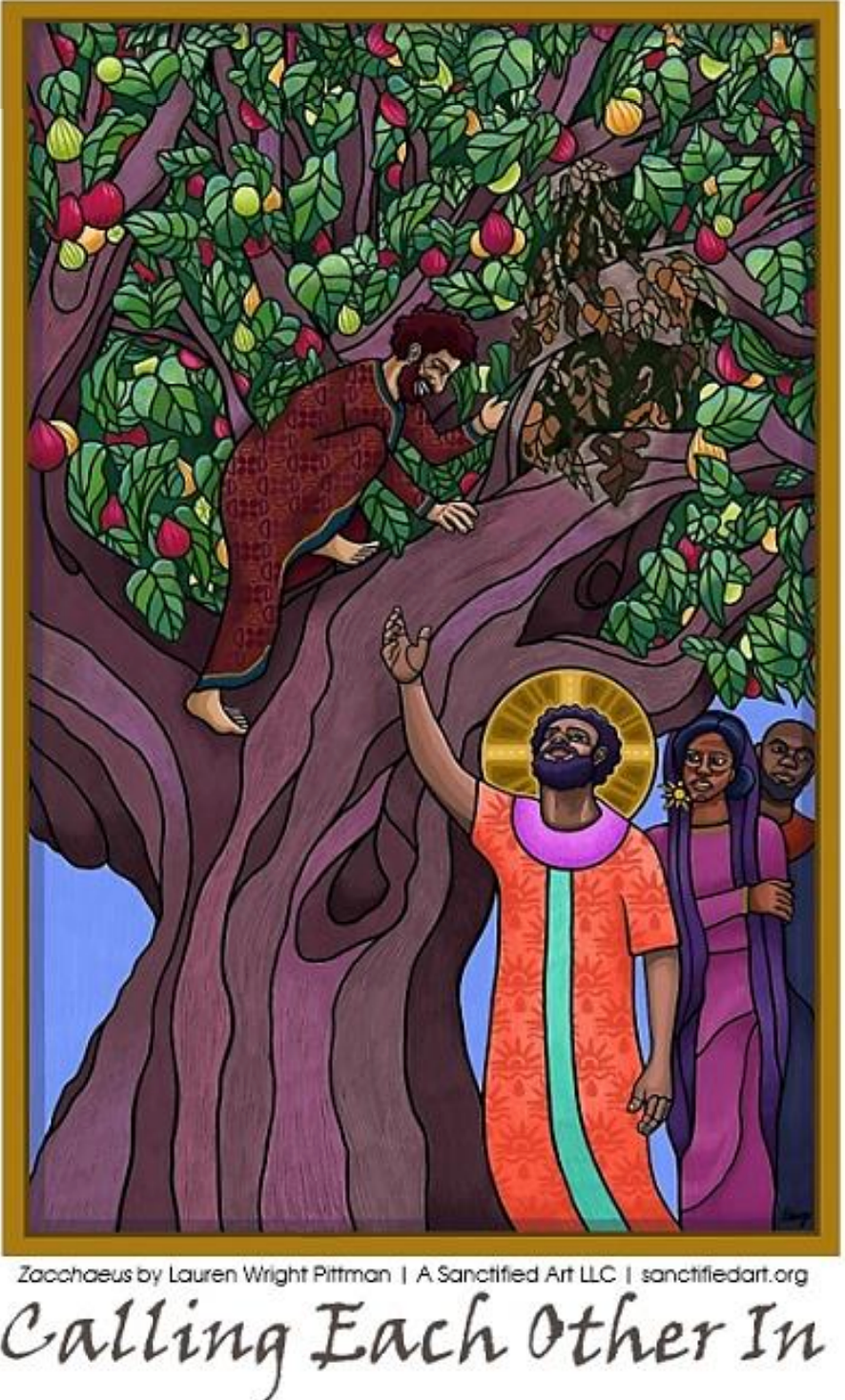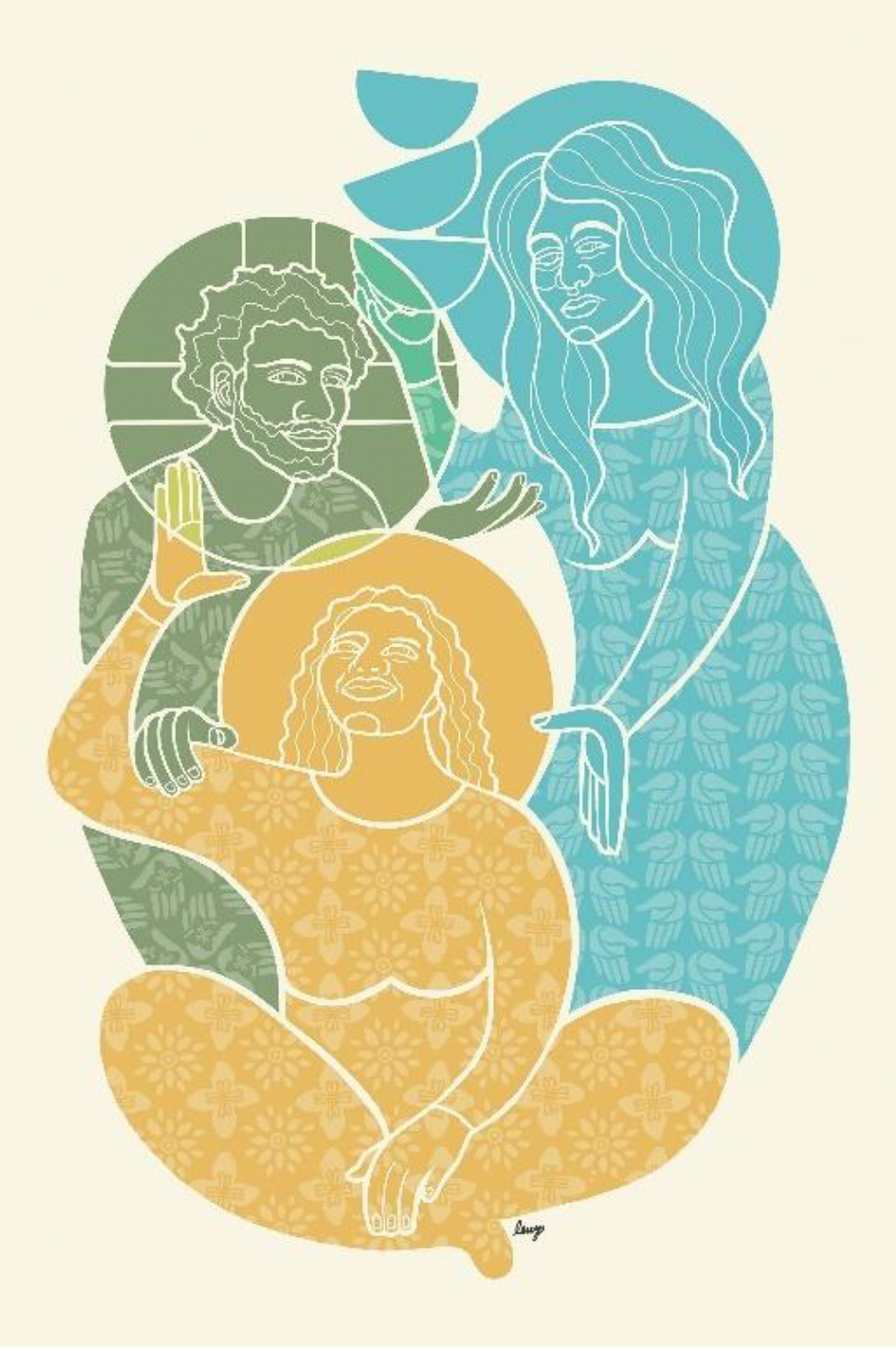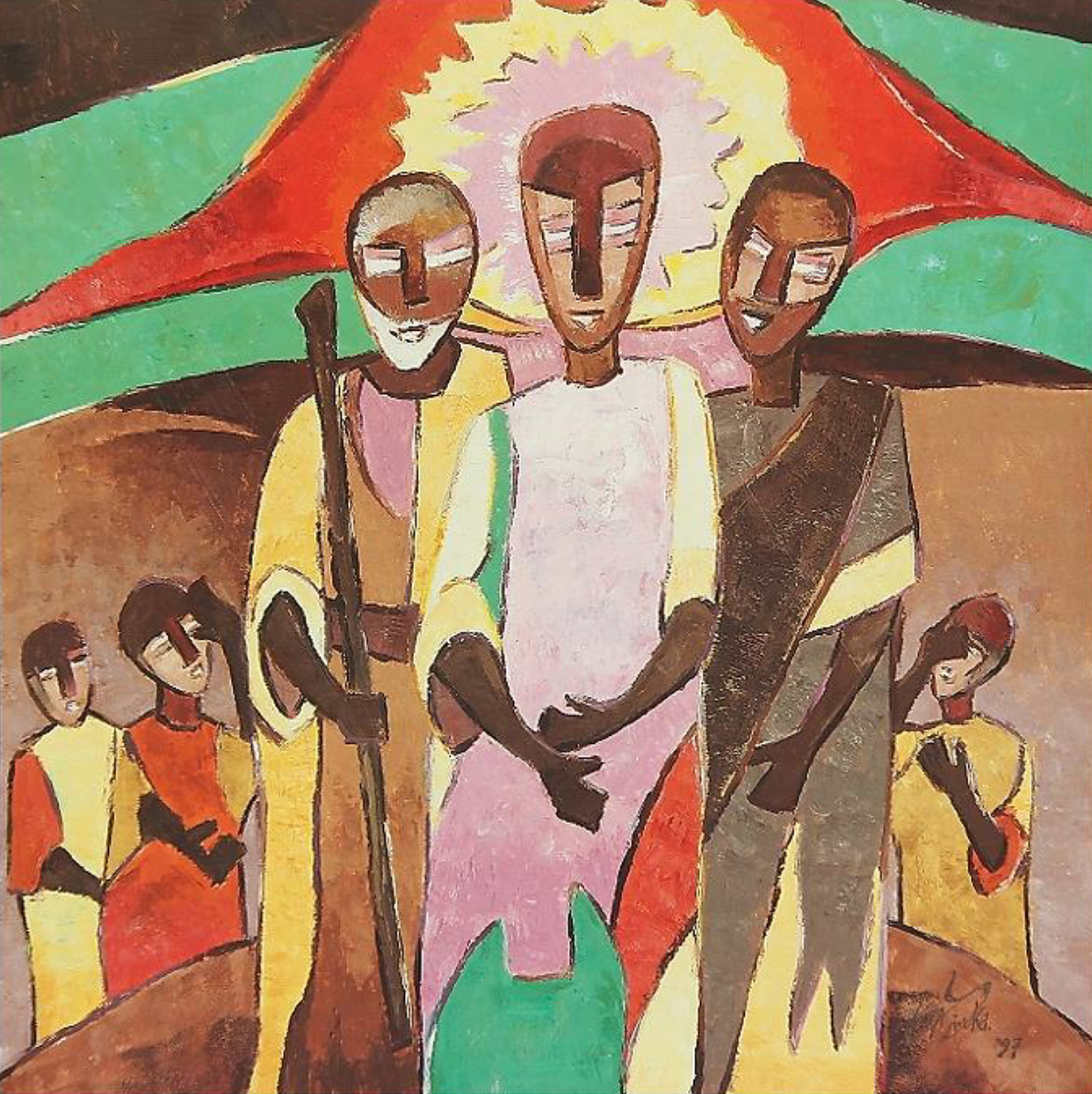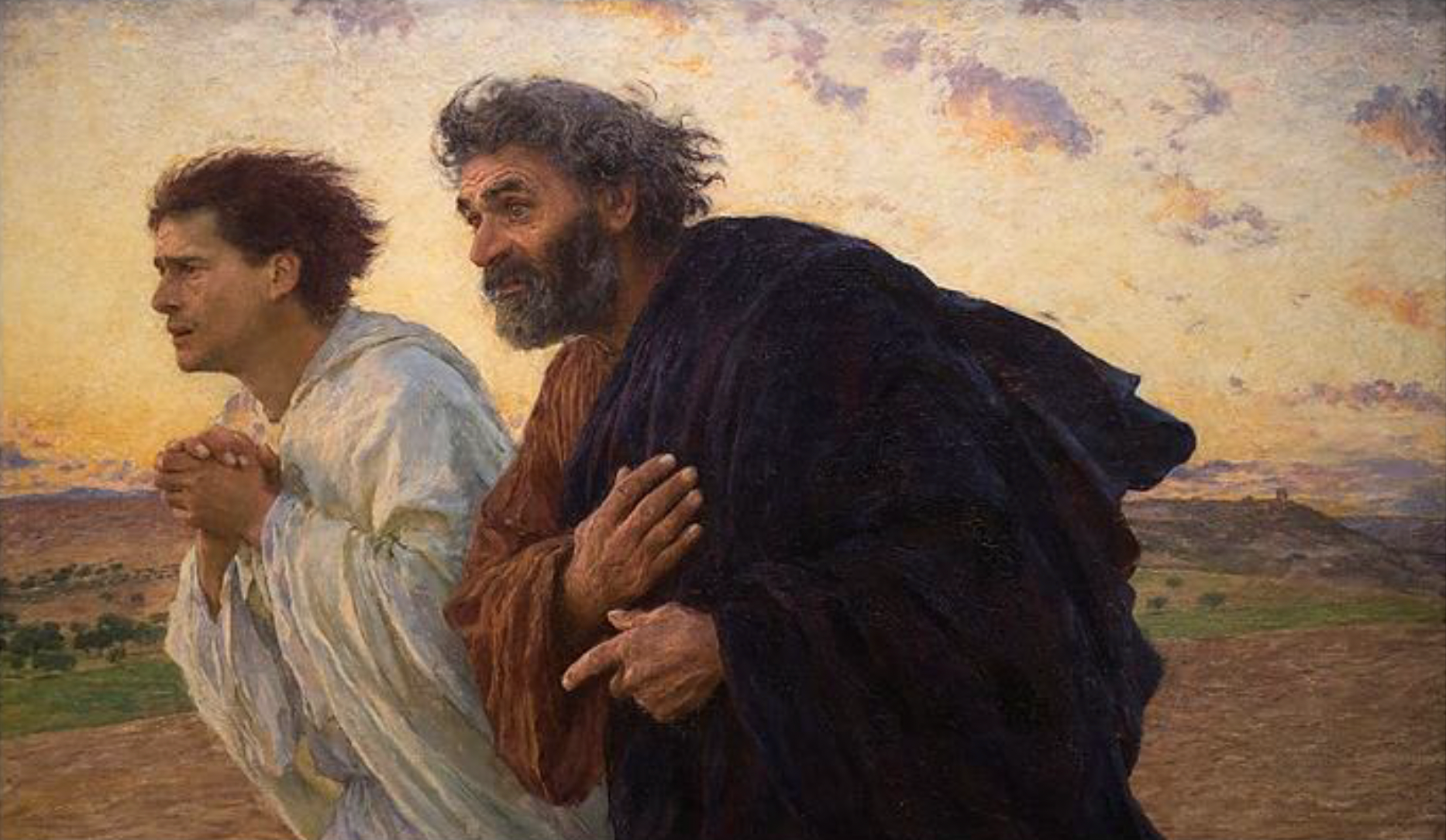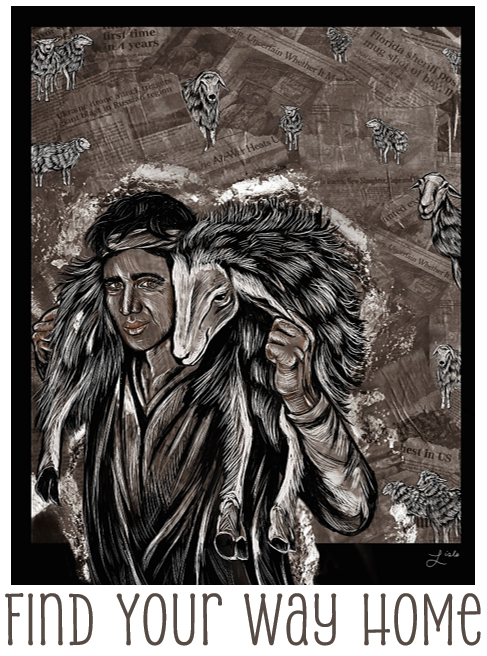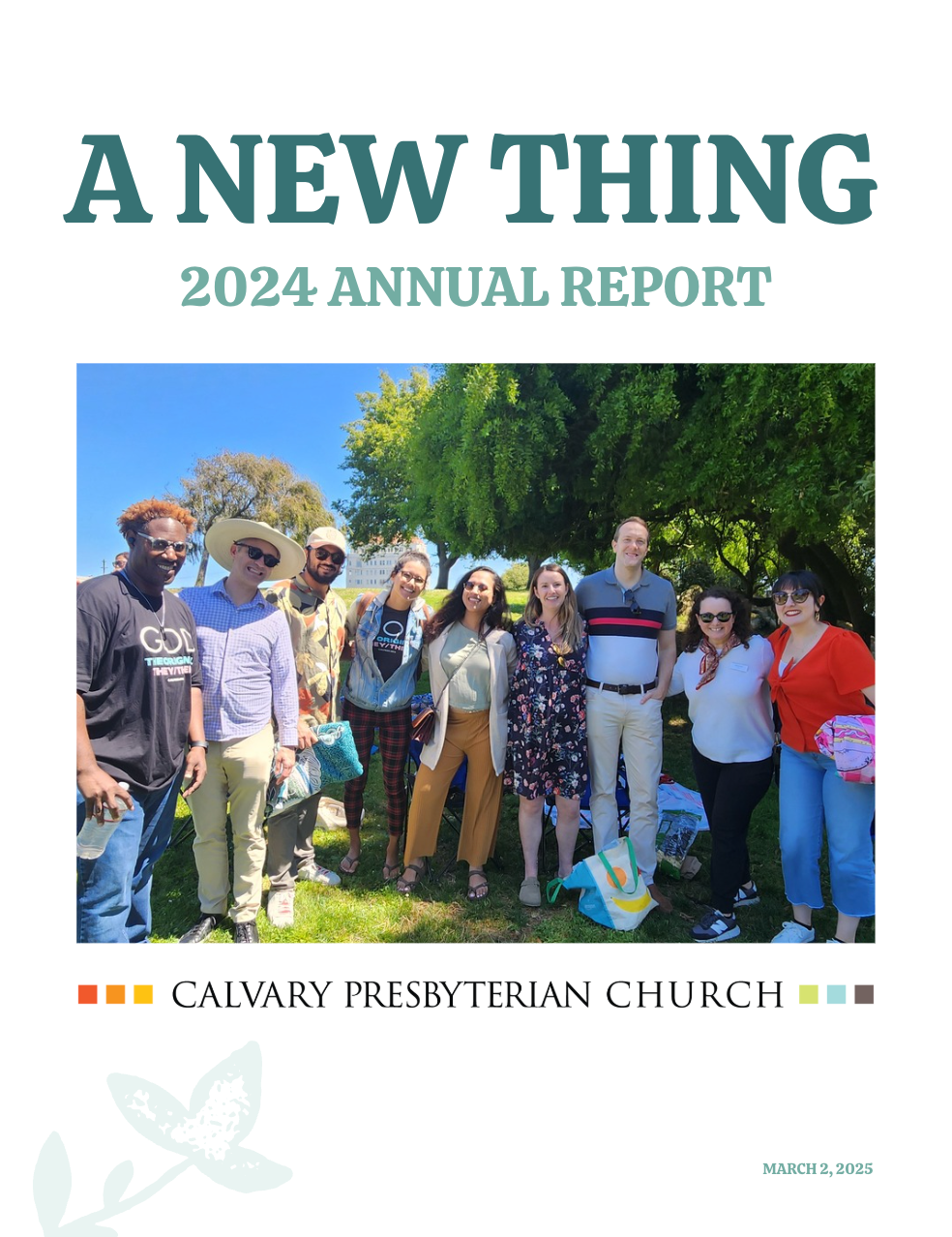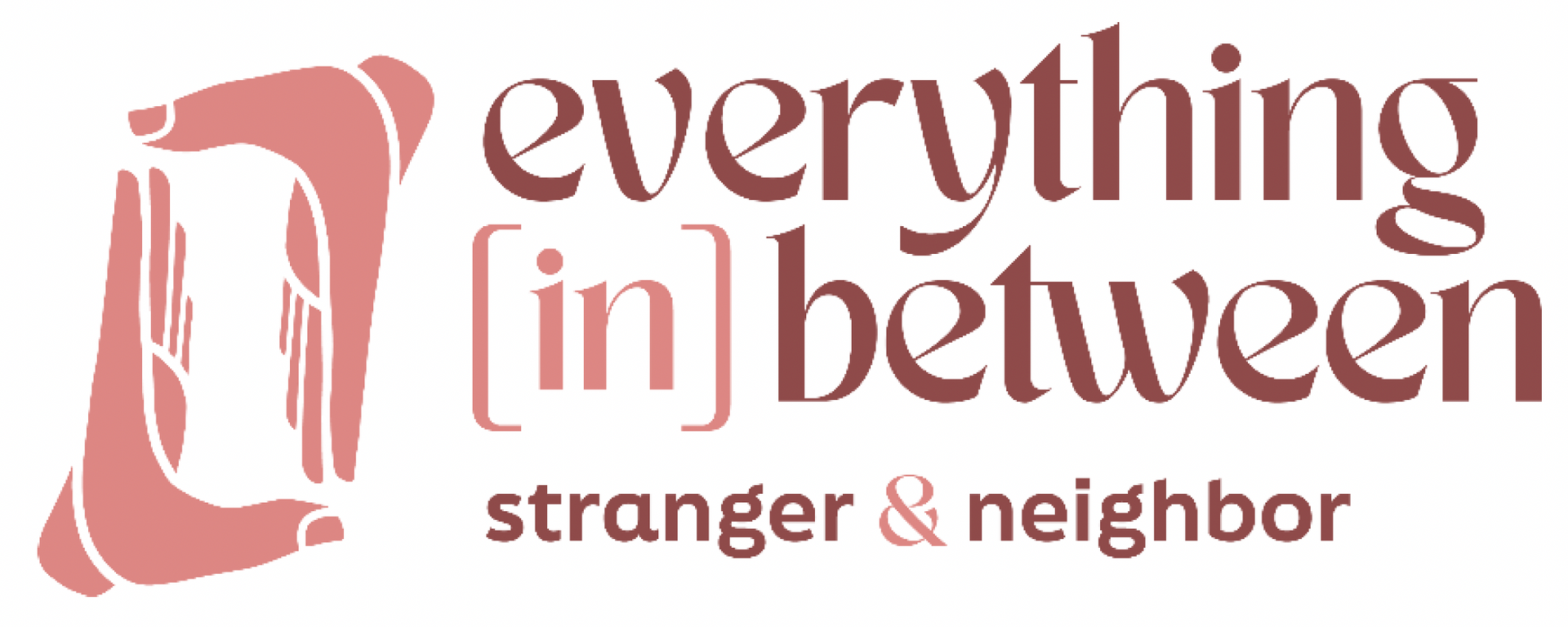Sermon 03.23.2025: Lent 3: Fear, Faith, Figs, and Foxes
Jesus continues his journey to Jerusalem and his disciples ask him a question as they walk. They want him to answer the questions we always want God to answer for us too—why do bad things happen to good people?
Join us as we consider Jesus' answer to the question.
Scripture
Luke 13:1-9, 31-35
At that very time there were some present who told him about the Galileans whose blood Pilate had mingled with their sacrifices. He asked them, ‘Do you think that because these Galileans suffered in this way they were worse sinners than all other Galileans? No, I tell you; but unless you repent, you will all perish as they did. Or those eighteen who were killed when the tower of Siloam fell on them—do you think that they were worse offenders than all the others living in Jerusalem? No, I tell you; but unless you repent, you will all perish just as they did.’
Then he told this parable: ‘A man had a fig tree planted in his vineyard; and he came looking for fruit on it and found none. So he said to the gardener, “See here! For three years I have come looking for fruit on this fig tree, and still I find none. Cut it down! Why should it be wasting the soil?” He replied, “Sir, let it alone for one more year, until I dig round it and put manure on it. If it bears fruit next year, well and good; but if not, you can cut it down.” ’
At that very hour some Pharisees came and said to him, ‘Get away from here, for Herod wants to kill you.’ He said to them, ‘Go and tell that fox for me, “Listen, I am casting out demons and performing cures today and tomorrow, and on the third day I finish my work. Yet today, tomorrow, and the next day I must be on my way, because it is impossible for a prophet to be killed away from Jerusalem.” Jerusalem, Jerusalem, the city that kills the prophets and stones those who are sent to it! How often have I desired to gather your children together as a hen gathers her brood under her wings, and you were not willing! See, your house is left to you. And I tell you, you will not see me until the time comes when you say, “Blessed is the one who comes in the name of the Lord.” ’
Sermon
Our Sermon Series materials for this week wanted the focus to be on the tension between resting and growing. And we’ll get to that in a while when we look at the fig tree. Resting and growing are important in our life of faith, but I want to start by focusing on the tower of Siloam part of the story.
Because there are a lot of stories in the news these days of good people’s lives being impacted in dangerous ways by people with bad intentions. And I’ve heard many people say something to the effect that “God is testing us” right now.
Let’s be clear, what is happening in the world right now is not God’s fault.
It is ours.
God is an agent of love, justice and mercy.
Behaviors of hatred, injustice and cruelty are not inspired by or caused by God, but by humans.
And we may not be the people enforcing unjust orders, but we do share complicity in having created a system that allows this abuse.
This is not God’s work. It is human work.
And Jesus ’followers want him to answer the questions we need answers for too—where is God in the midst of bad things? Why do bad things happen to good people?
Why are people being fired when they have been faithful in their work for our government?
Why are people being detained and tortured when their planes land at US airports, even when they have the right documentation of citizenship, or visas?
Why are good people losing access to health care, or the social security benefits to which they have contributed?
The list is long right now and it is right that we wonder and ponder where God is in the midst of it. It is right that we wonder and ponder where we are, or where should we be, in the midst of it.
Jesus, the ultimate “good people” is on his way to Jerusalem, where the “bad thing” of death on a cross will happen to him. So he’s not uninterested in this conversation, we can presume.
Jesus and his disciples seem to be reading the newspaper as they walk to Jerusalem. And they bring up the stories of the day to ask questions of their faith, which is what our faith ought to be able to do. We read the news in one hand, the Bible in the other, and see how they connect, or don’t connect, or leave us anxious, or hopeful, or just flummoxed and confused.
Some people had died when a tower in Siloam collapsed on them. We may not know where Siloam is, but this story reminds us of deaths from earthquakes, or mass shootings, or wildfires, or people who die too young from cancer, etc.—people who were just going about their lives when it all fell apart.
The other illustration in Luke’s account isn’t as clear. Some Galileans had been murdered by Pilate. The description is that their blood was mingled with their sacrifice, which tells us a few things.
One, they were in the temple in Jerusalem, because that’s the only place a good Jew would have been making sacrifices. These are faithful people, doing faithful things.
Two, this particular atrocity has political and not just religious implications because the Roman authorities normally left the religious life alone. They may have taxed you and kept you from civic and cultural freedom, but they tended to leave your religion alone.
But in this story, which is only recorded in Luke and not in any outside documents, Pilate has ignored the separation of church and state and has murdered people in the Temple as they are making sacrifice, mixing their blood with the sacrificial blood—desolating sacrilege.
Jesus, on his way to the Cross, had been calling people to repent and to prepare for the transformation of the world that was about to take place, and takes the time to address the misconceptions behind their questions.
Because a common assumption of people then, and also now, is that when bad things happen, we have somehow done something to deserve it. God is punishing us for our own sins or for the sins of our ancestors. We ask why God is testing us. Or we announce that God is punishing someone else.
Jesus stops them in their tracks. “Do you think that because these people suffered in this way that they were worse sinners than the other Galileans?”
Well, when he puts it that way, it doesn’t sound quite right.
Jesus won’t let us blame the victims of bad moments for accidents, or for our crimes.
Good people die in bad accidents and from cancer.
Bad people live to be 100 and die in their sleep.
Bad people die in bad accidents too, for that matter.
Blaming victims doesn’t change the fact that life is fragile, beautiful, and uncertain, and it does not change the real issue under our control.
Repentance.
“Do you really think those people are worse sinners than any of the rest of you?” Jesus asks. ”Whether you die when a tower collapses, or die quietly in your bed, don’t ask the wrong question. The real issue is repentance. Yes, life is fragile and short, so don’t worry about the righteousness of your neighbor. Worry about your own relationship with God. That ought to keep you plenty busy.”
And then Jesus goes on to talk about a fig tree.
We don’t know why someone planted a fig tree in the middle of a vineyard. Maybe it doesn’t belong there. But there it is. This tree has been in a guy’s vineyard for three years, which is plenty of time for a fig tree to start making figs, but it is barren. It is not doing its job. “Cut it down!”, he says. Which is a perfectly reasonable thing to do. Property is valuable, so if something isn’t producing as it should, you get rid of it and plant something else.
But the gardener argues for the unrepentant fig tree. “One more year. If I just spread some manure around it, I’m sure it will produce figs.”
I don’t do much farming from my 9th floor condo, but I think this is probably not very good gardening advice. I do think it is a great illustration of the faithfulness of God.
Because God, like a gardener, gifts us with mercy beyond measure. Long after we should be moved out of the vineyard, God for reasons only God can understand, continues to prune us, continues to nurture us, continues to surround us with manure, continues to have faith in our potential.
When Jesus confronts the people about the Galileans and the Tower of Siloam folks, he tells them about a fig tree and then says, “What kind of fig tree are you? Are you producing fruit, or are you just taking up space?”
We want to ask, “What will keep us safe?”
God wants us to ask, “What can we do to bear fruit with the life we’ve been given?”
We ask the wrong questions. And maybe the fig tree story is to remind us to ask the right ones.
Because the truth is this—if God were in the business of handing out punishment as consequence for our behavior—none of us would be standing. The vineyard wouldn’t have a single fig tree left in it.
Thanks be to God for the unfathomable mercy of God that our little fig trees are still standing, still striving to be faithful disciples and working to bear fruit in a hungry world.
Our repentance does matter. Repentance, or turning back to God, should call you back to living for God, for standing up for justice, for actively seeking God’s kingdom on earth as a response to God’s love and mercy.
Repentance, for the record, doesn’t mean we think that somehow we will stop making mistakes, or start being perfect, or work our way into salvation. Repentance is the opposite of that. We repent because we acknowledge that we try to do it all on our own, and that we deny our created-ness and pretend we have it all together. Repentance is ultimately our acknowledgement that good things happen to bad people, or to us.
Repentance is also about owning our responsibility for the world we have, and working to fix the problems so we can create societal structures to protect people. Repentance is demanding change when our world does not reflect God’s dreams for us.
Repentance can involve protest, disobedience in the face of unjust laws, and standing firmly with the people being targeted.
When we get hung up on the fact, the truth, the reality, that bad things happen to good people, Jesus calls us to remember that good things happen to good people as well. It is in the good, the bad, and the boring, equally, that we are called to live out our calling to bear fruit.
As our passage continues, Jesus marches toward Good Friday and the cross, and he hears a report that Herod wants to kill him. “Tell that fox Im a little busy right now. He can leave a message.”
Herod has killed Jesus’ cousin John the Baptist, and is a real threat. Jesus isn’t being glib or in denial in the face of danger. Jesus isn’t saying danger isn’t real. He’s reminding us that very real threats do not have to define us or our actions. We still have to bear good fruit and do what God has called us to do, even in the face of Herod, terror, and falling towers.
As the story continues, Jesus laments over Jerusalem and uses my favorite imagery for God. “How often have I desired to gather your children together as a hen gathers her brood under her wings, and you were not willing!”
I love the image of securely sheltering under God’s fluffy wings.
But remember what he just called Herod? And do you remember who foxes like to kill?
Chickens.
Jesus could have said, “Jerusalem, how often have I desired to gather your children together as a bear gathers her cubs in her arms, which are strong and have razor sharp claws.”
He doesn’t do that. He uses maternal, vulnerable, chicken-y illustrations in the same passage as he calls Herod a predatory, chicken hunting fox.
We worship a God who became human. And we may not think about how unusual that is in the history of gods people have worshiped. God chose to become one of us, in a vulnerable human body, subject to the same risks our human bodies face—foxes, falling towers, and all.
Earlier in the text, Jesus said instead of asking “how to be safe?” we should ask “how do we bear good fruit?” Here, instead of asking, “How do we not be afraid of what might happen?”, Jesus reminds us that while danger and risk is not optional for any of us, not even for him, fear is not our focus.
God is our focus, which gets us back to repentance, to turning back in God’s direction.
We live in a world that wants to focus our energy, our federal budget, and our animus toward those things and people we should fear. And the forces of destruction are scary. Jesus reminds us not to focus our energy on the wrong thing.
This week, as we read the newspaper, and watch the news on TV, I invite you to attend to the stories you encounter, and to the way they are being shared with you. Do the news stories lead you to focus on fear or on bearing good fruit in the world? Do they lead you to hope or despair? Do you need to listen to a different news source or maybe step away from the news for a minute if it is leading you only to fear?
Whatever may happen in the world this week, from towers falling to foxes in hen houses, may our faith in the God who fearlessly calls us in love, help us focus our energy toward bearing good fruit in the world.
We don’t know why our little fig trees have been planted in this particular vineyard, but here we are. May we plant deep roots of concern for our neighbors. May we grow strong in our faith, to withstand the storms of life. May our leaves provide cover to those in need of shade. May we bear fruit of repentance so all of God’s children may know of God’s love.
May it be so. Amen.

